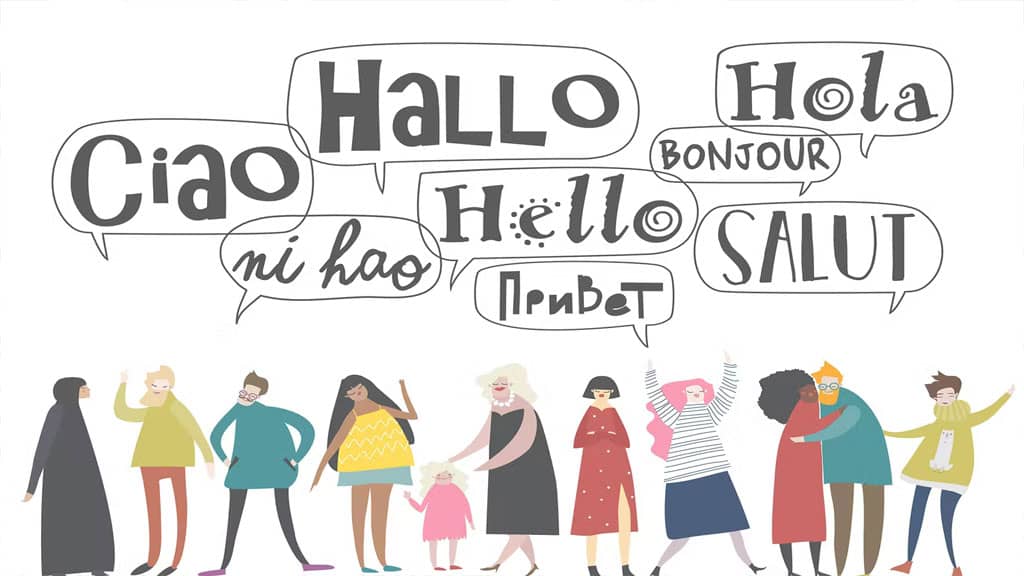
- Matthew Herel
- January 1, 2023
Facebook
Twitter
WhatsApp
Telegram
Email
Now you are Speaking my Language
As each church looks out at the people on its doorstep, the questions it must ask are: Are we speaking their language? Are we relevant to the people walking past our church every Sabbath?

As the disciples followed Jesus’ pre-ascension instructions and waited in Jerusalem for the Holy Spirit, they saw the city getting busier and busier. Pentecost was coming: the harvest festival celebrated 50 days after the Passover. Not only was the city becoming busier, it was also becoming more diverse. Luke, the author of Acts, paints a picture of the Jewish diaspora as a coalition of diverse peoples, filling the streets of the holy city. There were people from modern day Iraq, Kuwait, Syria, Egypt, and Libya, amongst other places.
Perhaps the apostles realised that this would represent an opportunity to share the story of Jesus with people from all over the known world. But I wonder if they subconsciously began to think that people would have to hear the Gospel in Aramaic, the language native to Judea? (Perhaps if they were feeling generous, they might have made concessions for Greek speakers, as Greek was the lingua franca of the day.) Maybe they believed that people should hear the gospel in the same language in which the Scriptures had been read aloud in the synagogues for centuries.
The truth is, it’s easy to think that ‘the way we’ve done things up to now is the only way to do them’. Many of us are guilty of applying this kind of logic, particularly when it comes to our worship and spirituality. What was at one stage innovative has, over the years, become immovable and unchangeable. (Just try pitching a new start time for worship and watch the fireworks!)
Well, if any of the disciples were thinking along these lines, they were in for a surprise. As the Holy Spirit made His long-awaited debut, He didn’t up-skill the multitudes so that they could hear the gospel in ‘holy languages’. Instead, He gave the apostles the miraculous ability to speak in all the languages that were represented in the city. It’s as if He were showing the apostles: ‘The people don’t change to connect with you; you change to connect with the people!’ We could sum up the Holy Spirit’s intervention in one word: relevance. He made His followers relevant to their audience. And there is nothing more relevant than the ability to speak someone’s language.
As each church looks out at the people on its doorstep, the questions it must ask are: Are we speaking their language? Are we relevant to the people walking past our church every Sabbath? We like to start worship at 9:30, but is that relevant to them? We like to have Sabbath School first and family worship second, but is that relevant to them? We like to base all of our worship activities in this building, but is that relevant to them?
What if we experimented with adjusting our service times based on information gathered in a local survey? What if once a month, we sent a worship team to hold a service in a public space like a library, a place full of people going about their business, who would perhaps never walk into a church building? What if we tried to be more relevant?
The Jewish nation thought that engaging with their foreign neighbours would make them unclean. And then, in His very first appearance, the Holy Spirit equips the apostles to speak in ‘unclean’ languages to make them relevant to the world around them. The message of the Gospel could not and would not change. But the delivery? That was flexible!
As Peter preached in Mesopotamian and John preached in Egyptian, many of those gathered must have observed, “Now they’re speaking my language!” What if we made relevance a core value for our churches? Maybe we’d find that communities from Portsmouth to Poplar to Peterborough would say the same.

How Should Christians be Different?
September 6, 2023

The Pastoral Caregiver – Bearer of Stories
September 6, 2023

What Takes to be Different?
September 6, 2023

The Beauty of Diversity Within the Body of Christ
September 6, 2023

The Butterfly, an Object Lesson of Transformation
September 6, 2023

Mitigating the Risks of Cultural Compromises
September 6, 2023

Embracing Christ-Centered Counterculture
September 6, 2023








